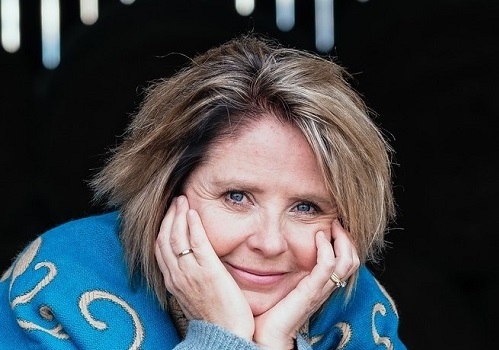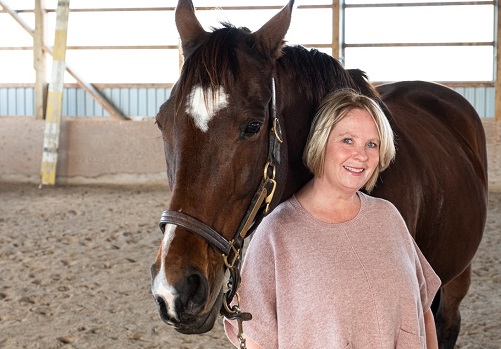What happens when a bride is minutes from walking down the aisle, and she remembers a parent who has been gone for years?
That’s exactly what I experienced on my wedding day. A song that came on the radio as the limo was about to pull up to the church. My bridesmaids witnessed as I went from an excitable, happy bride to bawling. I overwhelmingly recognized the song’s message; my father’s presence was so strong it was impossible to dismiss.I was left trying to both salvage my expensive bridal makeup, while at the same time hold the embrace I knew my father was sending me.
It had been 12 years since my father’s passing, and I couldn’t understand why I was having these feelings of grief on the happiest day of my life. He may not be physically here to walk me down the aisle on my wedding day, but he was telling me he was indeed still with me, and even if no one could see him, he would be right beside me anyway.
Grief was doing what grief does. It shows up to release what can’t be articulated. It is not an emotion of words, it is an emotion to be felt, experienced and released.
Now fast forward to the present day: I use horses as teachers to help individuals start, maintain and process their own expression of healing through grief and loss. It’s been more than 23 years since my wedding day, and I’ve learned just how much wisdom our bodies hold, and how necessary it is for our bodies to grief. I was caught off guard by this emotional release on my wedding day, but now I know the steps we can take to help our bodies prepare for such emotionally sensitive events.
I founded Skye Blue Acres, an Equine Intelligence Academy, to use horses to uncomplicate the experience and healing from death, grief, and loss. Horses offer the perfect reactive, intuitive, non-judgmental interface to help participants explore their grief and/or loss experience in the context of a grief averse world. By giving people permission to grieve, my clients regain self-awareness and insights into their own personal understanding and emotional expressions of loss.
My approach to grief and loss, particularly in partnering with horses, provides an opportunity for individuals to gain new and different perspectives on their own struggle with grief and loss. The pain is real. The emotions of deep despair we experience at the loss of a loved one or the ending of marriage are physical.
I am trying to dig deeper into what my business actually does for people and how it contributes to society as a whole. I believe there is value in growing as a human, broadening our perspectives on life challenges, and working with the deep emotions of grief and learning how to grow from the experience of a life-loss.
Working with horses provides unique access to our emotional, intuitive right brain that is often underused in society. The avoidance of acknowledging our emotions, an intuitive aspect of our species, is handicapping our ability to cope under stress. It is unproductive to value our expressive, logical, linear-thinking left brains at the expense of finding a balance between the two.
Could our cultural value system be one of the roots of most of our social problems? God forbid you’re angry, don’t cry, please don’t be sad, get a grip on yourself if you’re frustrated, and really tone down that joy, will you?
Sound familiar?
When working with humans, horses act like a biofeedback mechanism that responds to the energy/emotions of humans in their presence. In their environment, they respond to energy, and around humans, energy translates to emotions. Horses don’t know what we are thinking, but they know what we are feeling, and prefer us to be present. They prefer for us to be mindful of what we are doing, instead of in a distracted thinking mode that shifts awareness away from the present moment.
When I work with my clients, I use the horse’s cues to prompt questions for the clients. Most of the time, we don’t even talk about the loss that they are seeing me for. I look to see what needs to be talked about with that client to help them move through their emotions.
Some will say there are five stages of coping with grief, but I firmly believe there is no such thing.
Grief is an exhaustive mental and emotional state that can affect all aspects of our well-being. It can unsuspectingly creep upon us, or crawl towards us over days, months or years. But whatever way it reaches us; it never affects people in quite the same way. There is no escape or shortcutting our way through grief or a life-loss, and yet so many people don’t realize how their very actions (or inactions), thoughts, and beliefs are contributing to an impaired and broken approach to grief.
Grief may be a universal response to a physical loss of a person or a life loss, but how it plays out can look different for so many people. The factors that can compound each person’s grief have a lot to do with their comfort level around the expression of emotions, their willingness to seek out support, their comfort level with feeling vulnerable, and their acceptance of change.
While working through grief is not easy, simple or even straightforward, it does help to have a conscious, attentive and purposeful mindset. Through partnering with horses, individuals are given an opportunity to experience just where these blocks and resistance are occurring in the management of their grief.
Our Equine Intelligence Academy is one of the first programs that address “loss” outside of grief by broadening the definition to include loss through divorce, miscarriage, pets, fractured friendships, and more. Loss outside of grief impacts our emotional well-being. Having the awareness, permission, skills, and tools to navigate the inevitable period of loss is key to our emotional and mental well-being.
Gail Carruthers is an Equine Guided Learning facilitator, using horses as teachers for individuals to process and express grief and loss. She combines her Equine Guided Learning certifications with her training as a mediator to run the Equine Intelligence Academy at Skye Blue Acres. Gail is certified in the Neuro-Equine Model, the FEEL approach to Equine Learning and the Equine Assisted Learning Building Block Program. Gail is based in Toronto, Ontario.



Enjoyed reading this post and would like to like to learn more
Thanks for your message. Feel free to reach out to the entrepreneur via her website listed in the article, to find out more.